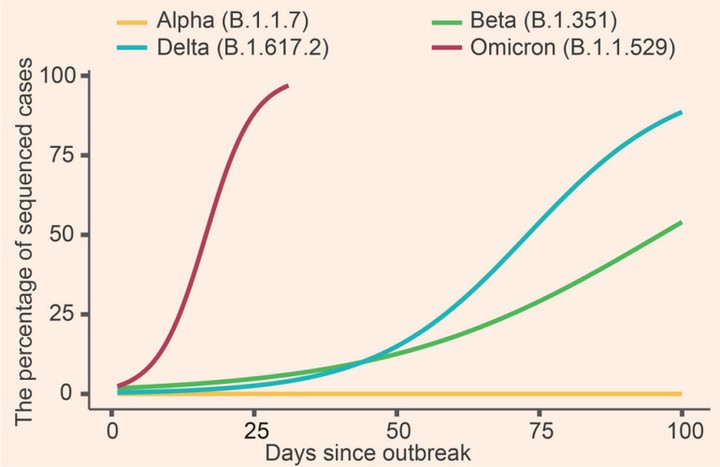Intrahepatic cholangiocyte regeneration from an Fgf-dependent extrahepatic progenitor niche in a zebrafish model of Alagille Syndrome

Abstract
Coronavirus disease 2019 (COVID-19) has brought about a great threat to global public health. Recently, a new severe acute respiratory syndrome coronavirus 2 (SARS-CoV-2) variant B.1.1.529 has been reported in South Africa and induced a rapid increase in COVID-19 cases. On November 24, 2021, B.1.1.529 named Omicron was designated as a variant under monitoring (VUM) by World Health Organization (WHO). Two days later, the Omicron variant was classified as a variant of concern (VOC). This variant harbors a high number of mutations, including 15 mutations in the receptor-binding domain (RBD) of spike. The Omicron variant also shares several mutations with the previous VOC Alpha, Beta, and Gamma variants, which immediately raised global concerns about viral transmissibility, pathogenicity, and immune evasion. Here we described the discovery and characteristics of the Omicron variant, compared the mutations of the spike in the five VOCs, and further raised possible strategies to prevent and overcome the prevalence of the Omicron variant.